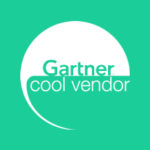Increasingly, hospitals and other healthcare providers must adopt knowledge management tools to glean the best insights for better decision making from the massive quantities of relevant information.
Can You Contain Expenses and Improve Outcomes?
In addition, the efforts to contain overhead while increasing efficiency in patient care make knowledge management tools a necessary solution for delivering the best possible care to patients.
How Will Knowledge Management Transform Healthcare?
The following are three key reasons hospitals are adopting knowledge management tools:
1. Transform information overload into empowered decision making.
Healthcare providers face the same conundrum that other industries face in the era of data and technology overload; the vast quantity of data has within it the answers they need. However, finding that information at the moment they need it without a knowledge management system is close to impossible.
This information can literally save lives if doctors have the ability to access it quickly from anytime, anywhere. Doctors continue to base their crucial decisions on personal experience and knowledge along with limited information on the patient.
In many healthcare settings, a doctor may see up to dozens of patients per day. They rarely have the time to consult with other doctors. Advanced, precisely organized knowledge management tools enable doctors to quickly search and pinpoint symptoms, procedures, medications, and other valuable data that could significantly improve patient outcomes.
2. Healthcare providers have no room for error.
No one expects to harm a patient or provide less than exceptional care. However, as healthcare providers consolidate staff, lawsuits and medical malpractice cases do occur. As providers leave, their own knowledge of current best practices and procedures follows them, and this can increase the risk of unintentional errors.
In other industries, an employee who makes a mistake may face minor consequences. They may face a reprimand, or if the same mistake is repeatedly occurring, they may be fired.
However, no one, employee or client, will be physically harmed and no one will face a lawsuit.
Obviously, this is not the case for hospitals. It is always possible that even a minor error could result in serious consequences, such as harm to the patient and a multi-million dollar lawsuit. Most doctors and hospitals put in tremendous effort to minimize those risks.
Knowledge management tools enable doctors and hospitals to standardize their procedures. In addition, the expert knowledge gathered in one system gives healthcare providers easy access to trainings on the appropriate procedures. When a knowledge sharing system offers a robust search function and mobile applications, healthcare providers can retrieve relevant information on the go.
3. Healthcare providers can collaborate and consult with experts while protecting confidentiality.
A patient’s medical records are now updated, transferred, and stored electronically. Both patients and providers benefit immensely from this transformation. Medical records are easily searched and shared between doctors and specialists. In addition, it is easier to maintain and track an electronic medical record versus a folder that may be faxed or sent from clinic to clinic.
Even with these benefits, hospitals, healthcare providers, and patients continue to have concerns about privacy and electronic record keeping. The adoption of digital records means new threats to privacy and confidentiality between doctor and patient.
Robust knowledge management tools facilitate collaboration between medical professionals without violating the doctor/patient relationship and confidentiality. The system enables healthcare providers to document and share information, such as symptoms, while keeping the patient’s identity behind a privacy wall. Life-saving knowledge is accessible while protecting privacy.
Knowledge management tools are providing powerful solutions to nearly every industry around the world. Every type of organization can benefit as well from a searchable knowledge, accessible training and procedures, standardization, and increased collaboration. However, as the digital transformation occurs in healthcare, knowledge management tools are no longer optional; they are essential.







